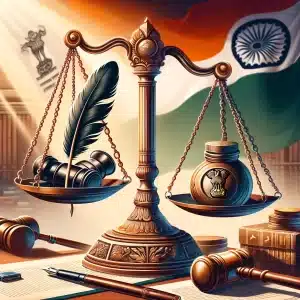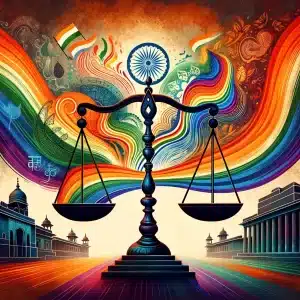According to Section 182 of the Indian contract act 1872, an agent is a person employed to do any act for another way to represent another in dealings with third parties. The person for whom such act is completed, who is so represented, is known as the principal. The contract which creates the connection of principal and agent is known as an agency or agency agreement.
Meaning of contract of agency
By the contract of agency, a person employee and another person to do any act for him or represent them in some dealing with the third person to bind himself by the acts of such another person.
The law of agency is based on the following general rules-
- Whatever a person can do personally, we can do through an agent. This rule is of course subject to certain well-known exceptions answer when the act to be performed is personal or is annexed to a public office.
- He who does an act through another does it by himself. This, in other words, means that the acts of an agent, subject to certain conditions, address the principal. Section 226 provides that an agent’s actions and contracts will have the same legal consequences as if the contract had been entered into and the acts done by the principal in person.
Example- T buys goods from A, knowing that he is an agent for their sale but not knowing who the principal is. A’s principal is the person entitled to claim from T the price of the goods. T cannot in a suit by the principal set of against that claim a debt to himself from A.
Test of agency
The test to determine whether the person is an agent or not- has that person the capacity to bind the principal and make him answerable to a third person by establishing privity of contract between that person and the principal? If he can, he is an agent, and otherwise, he is not. This relationship of the agency may be created either by implication or by express agreement.
The relation of the agency may arise in any one of the following ways-
- Agency by express agreement– according to Section 186 of the act, the authority of an agent may be expressed or implied, normally the authority given by a principal to this agent exam expressway authority with any was the agent to bind the principal by acts done within the scope of his authority. The agent may be appointed either by word of mouth or by an agreement in writing. The usual form of a written contract of agency is the power of attorney on a stamp paper.
- Agency by implied agreement- implied agency arises from the conduct, situation a relationship of parties. According to Section 187 of the contract act, the implied agency may be inferred from the circumstances occurring and thinks spoken or written or the ordinary course of dealing may be accounted as circumstances of the case. Example- Ben on the shop in Dehradun being himself in Roorkee. And visits the shop occasionally. The shop is managed by Harry and he is in the habit of ordering goods from Z in the name of Ben for the shop and for paying for them out of Ben’s funds with Ben’s knowledge. Harry has an implied authority from Bento to order goods from z in the name of Ben.
Employment agency arises when the principal conducts himself towards the person alleged to be the agent order third parties in such a manner as if the principle had conceded the appointment of that person as agent. The implied agency includes-
- Agency by estoppel- section 237 of the Indian contract act deals with the agency by estoppel. The doctrine of estoppel says that when a person by his conduct or his written or spoken words cleaves wilfully another person to believe that a certain state of affairs exists and induces him to act on that belief to alter his previous position, he is precluded from denying subsequently the fact of the state of affairs.
According to the section when an agent has without authority done acts or incurred obligations two a third person on behalf of his principal, the principal is bound by such acts or obligations. If he has by his words or conduct induced search third person to believe that such acts and obligations are within the scope of the agent’s authority.
Example- Ben tells Harry within the hearing of Zoe that he (Ben) is Zoe’s agent. Zoe does not object to the statement of Ben. Later Harry supplies certain goods to then returns to act as an agent of Zoe. Zoey is liable to pay the price to Harry. By keeping quiet Zoe had held Harry to believe that Ben is his agent.
- Agency By Holding Out- it is a branch of the agency by estoppel. In this case, a private positive or affirmative act on the part of the principal is required to establish agency subsequently. For example- Zoey allows his servant habitually to purchase goods for him on credit from Ben. One day he pays him cash for the purchase. The servant misappropriated the money and purchase goods on credit from Ben. When can recover the price from Zoe as he held out his servant asses agent on prior occasions?
- Agency By Necessity- in certain circumstances where the emergency occurs the law has to confer authority on a person to act as an agent for the benefit of another when there is no opportunity of communication with that other. A search agency is called an agency of necessity. It arises in the following-
- Agency by ratification– when a person acts on behalf of another person without his knowledge or
prior consent. For example – Ben may act as an agent of Zoe though he has no priority from Zoe. In such a case Zoe will subsequently either accept the act of Ben or reject it. If he accepts the act of Ben done without his consent is said to have ratified the act and places the parties in the same position in which they would have been if Ben had been under Zoe’s authority at the time, he made the contract.
According to Section 197, ratification may be implied or may be expressed in the conduct of the person on whose behalf the acts are performed
According to Section 196, the effect of ratification is to tender the acts done by one person on behalf of another without his prior knowledge or authority, binding on the other person as if they had been performed by his authority.
The agency comes into existence as soon as the agent acts first and not from the time when the principal ratified the act.
The termination of the agency
The termination of the agency of contract is the same as the dissolution of a contract except in the case in which the agency is irrevocable. It can also be terminated by events like the destruction of subject matter, the death of an agent or principal, and if the principal or agent becomes insane. By operation of law, the agency terminates as soon as the motive of the agency is completed.








